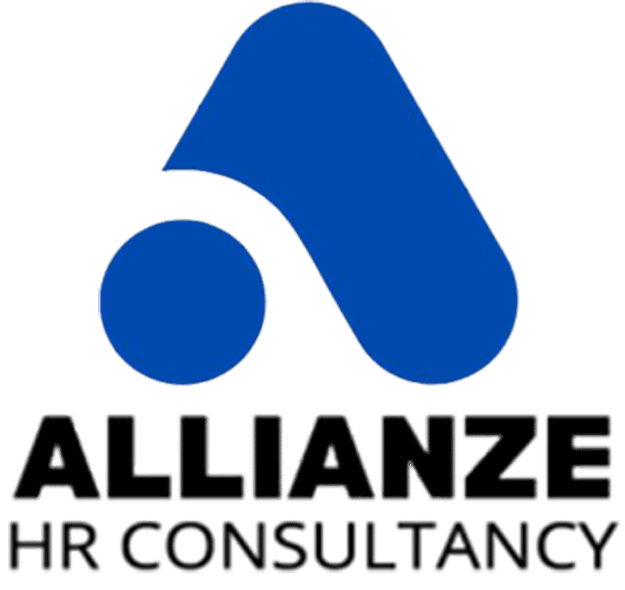How to Source Qualified Drivers and Transport Staff for Large Scale GCC Projects
The Unique Challenges of Transport Staff Recruitment in the GCC
Recruiting for any role in the GCC presents unique hurdles, but the transport sector is particularly complex due to the region’s specific demographic, regulatory, and environmental landscape.
Navigating Stringent Regulatory and Compliance Frameworks
Each GCC member state has its own evolving set of labor laws, visa requirements, and, crucially, licensing regulations for commercial drivers. For instance, obtaining a heavy goods vehicle (HGV) or public bus license often requires specific training, testing, and medical checks that vary by emirate or province. Non-compliance can result in significant fines, project delays, and reputational damage. Understanding these legal intricacies is the non-negotiable first step in the recruitment process.
Overcoming the High Demand and Low Supply of Qualified Talent
The sheer volume of concurrent projects creates an immense talent war. The demand for drivers with experience operating specialized machinery or holding specific license endorsements far outstrips the available local supply. This often forces project managers to look to international recruitment markets, introducing further complexity regarding cultural integration, language barriers, and credential verification.
Ensuring Safety and Performance in Extreme Conditions
GCC projects frequently operate in remote locations with extreme heat, challenging terrain, and long distances. Sourcing drivers who are not only qualified on paper but also possess the resilience, experience, and temperament to perform safely and efficiently in these conditions is paramount. A driver’s ability to manage fatigue and adhere to strict safety protocols directly impacts project risk.
Strategic Approaches to Sourcing Qualified Drivers
A proactive, multi-channel strategy is essential to build a robust pipeline of qualified transport staff.
Leveraging Specialized Recruitment Agencies and Partners
Partnering with a recruitment firm that has a proven track record and deep specialization in GCC transport and logistics staffing is one of the most effective strategies. These agencies possess established networks, understand the compliance landscape, and can pre-vet candidates, significantly reducing time-to-hire and mitigating risk. They often have pools of pre-screened talent both within the region and in key international source countries.
Tapping into International Talent Pools
Given the local talent shortage, looking beyond borders is necessary. Key source countries for driving staff in the GCC include India, Pakistan, the Philippines, and Egypt. Successful international recruitment requires:
- Establishing relationships with licensed overseas recruitment agencies.
- Creating clear and transparent communication about the role, compensation, and living conditions.
- Managing the entire visa and relocation process efficiently.
According to a report by Deloitte, effective global talent mobility programs are a key differentiator for successful large-scale projects.
Building an Employer Brand that Attracts the Best
In a competitive market, your project’s reputation matters. Top drivers seek employers who offer fair wages, safe working conditions, clear career progression, and respectful treatment. Promoting these values through testimonials, clear career sites, and industry networks makes your project a destination of choice.
Utilizing Digital and Social Media Recruitment Channels
Beyond traditional job boards, targeted social media campaigns on platforms like Facebook and LinkedIn can reach a wide audience of passive and active candidates. Geo-targeted ads highlighting specific benefits can be highly effective.
The Vetting and Qualification Process: Ensuring Quality and Compliance
Sourcing candidates is only half the battle; a rigorous vetting process is what separates qualified teams from unqualified ones.
Essential Credentials and License Verification
Every candidate must undergo meticulous document checks. This includes:
- License Validation: Authenticating the driver’s license class, endorsements, and issuing authority. This often requires direct verification with the home country’s transportation authority.
- Visa and Work Permit Status: Ensuring the candidate has the legal right to work for your project in the specific GCC country.
- Medical Fitness Certificates: Confirming the candidate meets the health standards required for commercial driving, particularly concerning vision, cardiovascular health, and diabetes.
Conducting Comprehensive Background and Reference Checks
A thorough background check is non-negotiable for safety-sensitive roles. This should include:
- Employment history verification for the last 5-7 years.
- Criminal record checks from their home country and any previous countries of residence.
- Contacting previous employers to confirm experience, performance, and reason for leaving.
Implementing Practical Skills and Aptitude Assessments
A license does not always equate to competence. Practical assessments are crucial:
- Behind-the-Wheel Tests: Evaluate driving skills in conditions similar to the project site (e.g., off-road, heavy traffic, with specific cargo).
- Knowledge Tests: Assess understanding of local traffic laws, safety regulations, and company policies.
- Soft Skills Evaluation: Gauge communication skills, problem-solving ability, and temperament, especially important for drivers interacting with the public or client teams.
Key Considerations for Different Types of Transport Staff
Not all driving roles are the same. Tailoring your sourcing strategy to the specific need is critical.
| Role Type | Key Qualifications | Sourcing Considerations |
|---|---|---|
| Heavy Goods Vehicle (HGV) Drivers | Specific license class (e.g., Saudi Category 4), experience with specific machinery (e.g., dump trucks, mixers), ADR certification for hazardous materials if needed. | High international demand. Focus on experienced operators from countries with large infrastructure sectors. Practical test is mandatory. |
| Light Vehicle & Staff Transport Drivers | Clean driving record, passenger endorsement, strong communication and customer service skills, knowledge of local geography. | Emphasize safety and punctuality. Look for candidates with prior chauffeur or passenger transport experience. |
| Transport Managers & Dispatchers | Certification in transport management (e.g., CPC), experience with fleet management software, strong logistical and leadership skills. | Often sourced locally or from within the region. Requires deep knowledge of GCC logistics and compliance frameworks. |
Retention and Management: Keeping Your Transport Team Engaged
High turnover is costly. Retaining your qualified staff is just as important as hiring them.
Competitive and Transparent Compensation Packages
Offer packages that are at or above market rate. This includes basic salary, overtime pay, end-of-service benefits, and, crucially, clear terms regarding working hours and leave rotations. Transparency builds trust and reduces disputes.
Investing in Training and Career Development
Provide ongoing training on safety protocols, new vehicle technologies, and defensive driving. Offering pathways for promotion to senior driver, trainer, or supervisor roles increases loyalty and engagement.
Fostering a Culture of Safety and Respect
Prioritize physical and mental well-being. This means providing proper accommodation, access to healthcare, modern and well-maintained vehicles, and a management culture that values driver feedback and prioritizes safety over unrealistic schedules. The World Health Organization (WHO) emphasizes the importance of holistic safety programs in reducing occupational road risk.
Frequently Asked Questions (FAQs)
What is the most challenging aspect of recruiting drivers for GCC projects?
The most significant challenge is the combination of intense competition for a limited pool of talent and the complex, evolving regulatory compliance requirements. Verifying international licenses, securing the correct visas, and ensuring candidates are medically and practically fit for the extreme operating conditions requires specialized expertise and time.
How can I verify a driver’s license from another country?
Verification typically requires working with the embassy or consulate of the country that issued the license or with a licensed verification agency that has international contacts. Some countries have online verification portals. The process can be time-consuming, so it should be initiated early in the hiring process.
What are the key benefits of using a specialized recruitment agency?
A specialized agency provides four key benefits: 1) Speed: Access to a pre-vetted talent pool reduces time-to-hire. 2) Compliance: Expertise in GCC labor and licensing laws mitigates legal risk. 3) Quality: Rigorous vetting processes ensure higher-quality hires. 4) Market Knowledge: Insight into competitive compensation and benefits packages.
Why is staff retention so important for transport roles?
High turnover directly impacts project costs (recruitment, onboarding, training), safety (inexperienced drivers pose a higher risk), and schedule consistency. A stable, experienced team operates more efficiently, requires less supervision, and contributes to a stronger, safer organizational culture.
Conclusion: Building a Road-Ready Workforce for GCC Success
Sourcing qualified drivers and transport staff for large-scale GCC projects is a complex, high-stakes endeavor that extends far beyond simple recruitment. It demands a strategic approach that integrates a deep understanding of local and international regulations, a multi-channel sourcing strategy, an uncompromising vetting process, and a steadfast commitment to retention and safety. By treating your transport workforce as a critical, valued component of your project’s success—and by leveraging expert partners where necessary—you can build a reliable, compliant, and highly skilled team that keeps your project moving forward safely and on schedule. The success of your mega-project literally rides on their shoulders.
Ready to build your ideal transport team? Our experts specialize in navigating the complexities of GCC staffing. Explore our Resources for more insights, or Contact Us today to discuss your specific needs. Book an Appointment for a personalized consultation.



